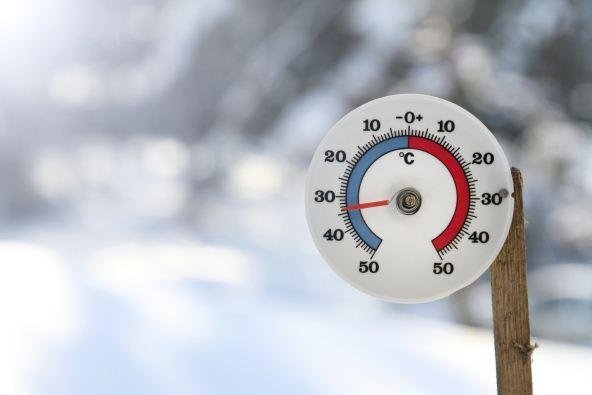Business is good and fulfilling. But sometimes natural cause tend to wreck it. Get “Pro Tips On How To Secure Your Business Against The Harsh Winter 2024.”
The majority of individuals find winter storms inconvenient. Entrepreneurs, on the other hand, may see them as a potential disaster. Snow, icy rain, and sub-zero conditions may all have a negative impact on startups, causing property damage, tangling supply lines, and delaying shoppers.
Fortunately, by taking a few easy actions, businesses can avoid becoming victims of Old Man Winters.
Get free quote today
Protect the company and assets.
A solid commercial protection plan is your best security against the harsh winter weather. Verify that you have a company owner’s policy that includes both general liability and destruction of property coverage.
Thus, if a customer trips and falls on slippery steps, or your pipes freezes and burst, you won’t be saddled with a large charge. Businesses with vehicles may consider business automobile coverage, which may cover storm-related minor benders. The good news is that GEICO makes it simple to receive all of the aforementioned and more for the business you represent.
- Weatherproof everything.
- Empty your hose pipes and turn off water supply at the outside valves.
- Unplug the pipe from the faucet valve and place it in a storage unit or shed.
- Keep all of your garden plants and trees cut down.
- Bring inside or conceal any outside furniture.
- Cover the air conditioner condenser component.
- Clean the drains.
- Inspect the weather strips around windows and doorways.
- Restore any old and drafty frames.
- Use an exterior draft catcher to insulate foyers.
- Get the heating equipment examined by an accredited technician.
- Replace the furnace filtering system.
- If you happen to have a hearth or chimney, get them cleaned.
- cabinets,Wipe dust or filth from your air filing cabinets ceiling fan blades, and bathroom fans, as well as your dryer vents, using an upright vacuum attachment.
- Wrap up your water pipe.
- Schedule upkeep on your cars and trucks.
- Practice disaster drills.
Winter storms cause turmoil, and companies that aren’t equipped can find themselves facing serious financial trouble. That is why the US Federal Emergency Management Agency (FEMA) encourages conducting emergency drills before the bad weather arrives.
FEMA conducts a series of drills tailored exclusively to small enterprises. They range from communicating absent cellphones to addressing burst plumbing.
Prepare With Emergency Supplies
You’ll need a lot of things to get through a major winter storm. Top of the list is a combustion generator that will provide electricity to your business in the event of a power outage. Just be certain it’s outside; the exhaust contains carbon monoxide, a poison that causes hundreds of unintentional deaths each year.
Other items to have on standby are shovels, healthcare supplies, flashlights, mineral salt, and even extra paper for the bathroom. But don’t simply supply your structures; make sure every vehicle has a disaster safety kit.
Brace for the worst case scenario.
Winter storms can have a long-term impact, sometimes lasting weeks. Considering most small businesses cannot afford to be inert for that long, a plan for business continuity is essential. A excellent one will specify how you will maintain your firm running in the aftermath of a calamity.
It should include plans for keeping the supply chain open, communicating with staff, establishing a temporary the corporate office, and handling insurance claims. The federal government offers some excellent advice on how to create a continuity strategy.
Monitor the weather predictions.
The National Weather Service monitors blizzards with an easy-to-use graphical map. If an impending storm is on its way, check the site for more information and follow the service’s cautions.
Pro Tips On How To Secure Your Business Against The Harsh Winter 2024
Conduct a Comprehensive Risk Assessment
Before winter arrives, perform a thorough risk assessment to identify vulnerabilities in your business. Consider potential hazards like:
- Weather-Related Disruptions: Analyze how snow, ice, or extreme cold could affect your operations. This includes supply chain interruptions, property damage, and employee safety.
- Employee Safety: Evaluate risks to your staff during winter weather, especially if they commute or work outside.
- Equipment and Infrastructure: Inspect your physical premises for any weaknesses that could be exacerbated by winter conditions.
Once you identify potential risks, create a plan to mitigate them.
Enhance Your Property’s Winter Resilience
Insulation and Heating: Ensure your building is well-insulated to maintain a comfortable temperature. Regularly inspect your heating systems and perform necessary maintenance before winter sets in. Consider having a professional service your heating units to prevent breakdowns during the cold months.
Roof and Gutter Maintenance: Inspect your roof for any damage or leaks that could worsen with snow accumulation. Clear gutters and downspouts to prevent ice dams, which can cause roof leaks and water damage.
Snow and Ice Management: Develop a snow and ice removal plan. This includes hiring a professional snow removal service or training your staff to handle snow and ice safely. Ensure you have the necessary equipment, such as shovels, salt, and ice melt, on hand.
Strengthen Your Supply Chain
Winter can disrupt supply chains, leading to delays and inventory shortages. To secure your business:
- Diversify Suppliers: Avoid relying on a single supplier. Establish relationships with multiple vendors to ensure a steady flow of materials, even if one is affected by winter weather.
- Stock Up on Essentials: Anticipate potential supply chain disruptions by stocking up on essential inventory. This includes critical materials, products, and supplies that could be hard to obtain during extreme weather.
- Develop open dialogue with your vendors.
- Discuss their winter preparedness plans and ensure they have strategies in place to minimize disruptions.
Implement Remote Work Solutions
Winter storms can make it difficult for employees to commute to work. Implementing remote work solutions can help maintain productivity during inclement weather:
- Invest in Technology: Equip your team with the necessary technology to work remotely. This includes laptops, secure VPN access, and collaboration tools.
- Create Remote Work Policies: Develop clear policies regarding remote work during winter weather. Communicate expectations for productivity and availability, ensuring employees know how to stay connected.
- Test Remote Systems: Before winter hits, conduct tests to ensure that your remote work systems are functional. Address any technical issues that arise to avoid disruptions when winter storms occur.
Prepare Your Employees
Your employees are your most valuable asset, and ensuring their safety during winter is crucial:
- Winter Safety Training: Provide training sessions on winter safety protocols. This includes safe commuting practices, how to handle icy conditions, and emergency procedures during severe weather.
- Flexible Scheduling: Offer flexible work schedules during severe weather to accommodate employees who may have difficulty commuting. Encourage them to prioritize safety and stay home if conditions are hazardous.
- Emergency Contact List: Maintain an updated emergency contact list for employees. This ensures that you can quickly reach them in case of an emergency or severe weather event.
Review Your Insurance Coverage
Winter-related risks may require you to revisit your insurance policies:
- Evaluate Your Policies: Review your business insurance coverage to ensure you are adequately protected against winter-related incidents, such as property damage from snow accumulation or slips and falls.
- Consider Additional Coverage: Depending on your business type, consider additional coverage options, such as business interruption insurance, to safeguard against financial losses during winter-related disruptions.
- Consult with an Insurance Professional: Speak with an insurance agent to discuss your specific needs and determine if any adjustments to your coverage are necessary.
Stay Informed and Plan Ahead
Finally, staying informed about weather forecasts and planning for potential disruptions is vital:
- Weather Monitoring: Keep an eye on weather forecasts, especially as winter storms approach. Use weather apps or services to stay updated on conditions that may impact your business.
- Create a Business Continuity Plan: Develop a comprehensive business continuity plan that outlines procedures to follow during extreme weather events. This plan should cover everything from employee safety to operational adjustments.
- Regularly Review Your Plans: Regularly review and update your winter preparedness plans to ensure they remain relevant and effective.
Conclusion
Securing your business against the harsh winter of 2024 requires proactive planning and preparation. By conducting a thorough risk assessment, enhancing your property’s resilience, strengthening your supply chain, implementing remote work solutions, preparing your employees, reviewing your insurance coverage, and staying informed, you can navigate the challenges of winter with confidence.
Taking these steps will help protect your business, your employees, and your bottom line during the colder months ahead. Prepare today to ensure a successful and safe winter season for your business!






